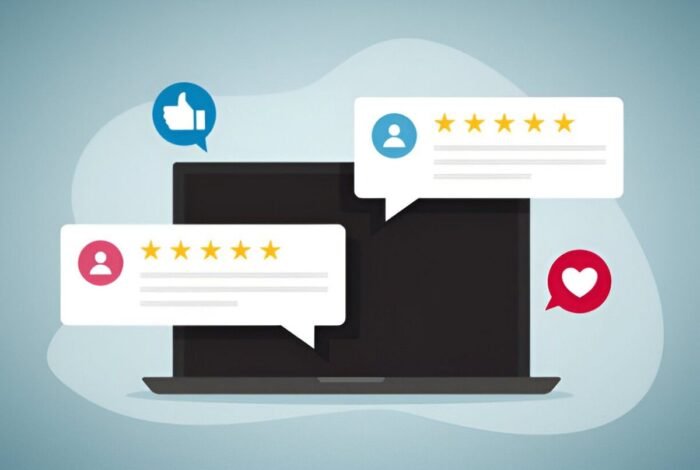Running an e-commerce business means juggling many responsibilities, but few are as crucial as managing your reputation. A strong online reputation influences customers’ trust, which directly impacts sales. After all, no one wants to buy from a brand with poor reviews or unresolved complaints. To address this, investing in the right reputation management software can be a game changer. In this article, I’ll explore some of the best tools, their features, pricing, and how they compare to one another.
Why Reputation Management Matters in E-commerce
Before diving into the software, let’s consider why reputation management is so vital. Unlike brick-and-mortar stores, e-commerce businesses rely heavily on digital interactions. Online reviews, social media comments, and customer feedback form the backbone of your reputation. Here are some angles to think about:
- Trust Building: Positive reviews build customer trust, while negative feedback can deter potential buyers.
- Search Rankings: Reviews and reputation impact search engine algorithms, influencing your visibility.
- Brand Loyalty: Engaging with customers’ concerns fosters loyalty and encourages repeat purchases.
- Crisis Management: The ability to address negative reviews promptly can prevent minor issues from escalating.
Given the stakes, having the right tools in your arsenal isn’t just beneficial—it’s essential.
Key Features to Look for in Reputation Management Software
When evaluating reputation management tools, it’s important to focus on features that align with your business needs. Here are some must-have capabilities:
- Review Monitoring: Tracks customer reviews across platforms.
- Sentiment Analysis: Understands the tone of customer feedback.
- Automated Responses: Sends pre-configured responses to reviews.
- Reporting and Analytics: Provides insights into trends and performance.
- Integration: Works seamlessly with your existing tools, such as CRM or social media management platforms.
- Multi-platform Coverage: Monitors reviews from Google, Yelp, Facebook, and niche platforms relevant to your industry.
Comparison Table of Top Reputation Management Software
| Software | Best For | Key Features | Pricing | Platforms Monitored |
|---|---|---|---|---|
| Podium | Small to medium businesses | Review generation, messaging, analytics | Starting at $289/month | Google, Facebook, Yelp |
| Birdeye | Multi-location businesses | Sentiment analysis, competitor benchmarking | Custom pricing | 150+ platforms |
| Yotpo | E-commerce and retail brands | Review collection, loyalty programs, SMS marketing | Free to $29/month and up | Shopify, Google, Facebook |
| Reputation.com | Large enterprises | AI-driven insights, review distribution | Custom pricing | Google, Facebook, Industry-specific |
| Trustpilot | Direct-to-consumer brands | Verified reviews, SEO-optimized review widgets | Free to $199/month and up | Trustpilot only |
Let’s explore each tool in depth.
1. Podium
Podium is ideal for small to medium-sized businesses looking to streamline customer interaction. It’s particularly strong in review generation and messaging. With Podium, you can request reviews via text, making it easy for customers to respond.
- Pros: User-friendly dashboard, excellent for local SEO.
- Cons: Pricing can be steep for startups.
Podium’s reporting feature lets you track trends, giving you insights into customer sentiment over time.
2. Birdeye
Birdeye caters to businesses with multiple locations. Its ability to manage reviews across 150+ platforms makes it invaluable for enterprises that operate at scale. It includes sentiment analysis, so you can quickly gauge whether feedback skews positive or negative.
- Pros: Comprehensive platform monitoring, great for large teams.
- Cons: Requires onboarding to fully utilize.
Birdeye also offers competitor benchmarking, allowing you to see how your reputation stacks up.
3. Yotpo
Yotpo is tailored for e-commerce businesses, offering more than just reputation management. It integrates with Shopify and other platforms, allowing you to collect reviews, run loyalty programs, and even engage in SMS marketing.
- Pros: Excellent integration with e-commerce platforms, affordable tiers.
- Cons: Advanced features locked behind higher pricing plans.
Its ability to display reviews on product pages helps convert hesitant buyers.
4. Reputation.com
Reputation.com stands out for its AI-driven insights and tailored solutions for large enterprises. It’s ideal for industries like healthcare or automotive, where maintaining a pristine reputation is non-negotiable.
- Pros: Highly customizable, robust analytics.
- Cons: Custom pricing can be prohibitive for smaller businesses.
The platform’s focus on review distribution ensures positive feedback is highlighted across relevant channels.
5. Trustpilot
Trustpilot is synonymous with consumer trust. While it’s primarily known for verified reviews, its SEO-optimized widgets are a boon for e-commerce brands looking to improve search rankings.
- Pros: Highly trusted platform, boosts SEO.
- Cons: Limited platform coverage compared to competitors.
Trustpilot’s public profile pages often rank high in search results, offering an additional layer of visibility.
Factors to Consider When Choosing a Tool
When deciding which software to use, consider the following factors:
- Business Size: Are you a solo entrepreneur, a small team, or a large organization?
- Budget: What’s your budget for software? Are you comfortable with custom pricing models?
- Industry: Does the software cater to your niche? Some tools are better suited for specific industries.
- Ease of Use: Will your team find the platform intuitive?
- Customer Support: Does the provider offer support in case you encounter issues?
Additional Tools Worth Considering
While the tools above are among the most popular, there are other options you might find useful depending on your needs:
| Software | Unique Selling Point |
|---|---|
| Grade.us | Affordable review monitoring for SMBs |
| Sprout Social | Social media monitoring alongside reviews |
| ReviewTrackers | Focus on customer journey insights |
Each of these tools offers something unique, so it’s worth exploring how they align with your priorities.
Best Practices for Using Reputation Management Software
- Set Alerts: Configure alerts to notify you of new reviews so you can respond promptly.
- Engage Proactively: Respond to both positive and negative reviews.
- Track Metrics: Use the analytics features to monitor performance over time.
- Integrate Across Platforms: Ensure the software syncs with your CRM or other tools.
- Encourage Reviews: Use the software’s features to request reviews from satisfied customers.
Final Thoughts
Investing in reputation management software isn’t just about responding to reviews. It’s about shaping your brand’s perception, building trust, and driving growth. The tools I’ve discussed here cater to a range of needs and budgets, so there’s something for every e-commerce business. By choosing the right platform and leveraging its features effectively, you can turn customer feedback into a competitive advantage.





